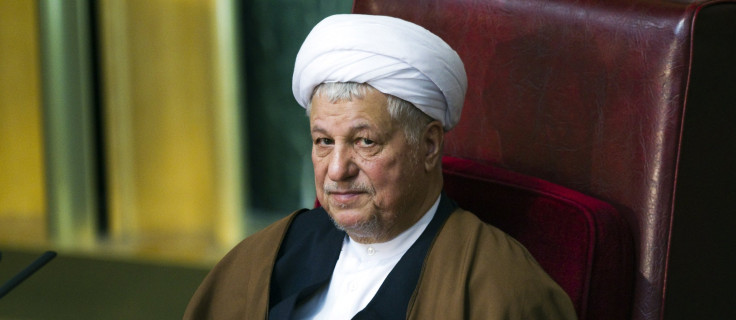Iran's Possible Next Supreme Leader Being Examined: Rafsanjani

DUBAI (Reuters) - An Iranian committee is examining potential candidates to be the next Supreme Leader, former president Akbar Hashemi Rafsanjani said Sunday, breaking a taboo of talking publicly about succession in the Islamic Republic.
Even after Ayatollah Ali Khamenei, 75, had surgery for prostate cancer last year, public discussion over who would succeed him never gained momentum in official circles because of the risk of being seen to undermine Iran's most powerful figure.
But with an election in February of the Assembly of Experts, the clerical body that appoints the Supreme Leader, such discussion is bound to come to the fore.
Moderate President Hassan Rouhani and his allies are hoping to cash in on the popularity they have gained by striking a nuclear deal with world powers that could see sanctions lifted to win the majority of seats in the assembly and a parliamentary election that will be held on the same day.
"The Assembly of Experts will act when a new leader needs to be appointed. They are preparing for that now and are examining the options," Hashemi, a powerful ally of Rouhani, was quoted as saying by ILNA news agency on Sunday.
"They have appointed a group to list the qualified people that will be put to a vote (in the assembly) when an incident happens," he added in rare comments acknowledging the process.
The assembly of 82 elected clerics is charged with electing, supervising and even disqualifying the Supreme Leader.
It is elected by the people roughly every 10 years and Rafsanjani's comments could be aimed at engaging public support for the election and his allies to give them more power in choosing the next leader.
Over past decade, conservatives have gained more seats both the assembly and parliament, because all candidates are vetted by the Guardian Council, whose most influential members are chosen directly and indirectly by the Supreme Leader to interpret the constitution.
The Supreme Leader is commander-in-chief of the armed forces and appoints the heads of the judiciary. Key ministers are selected with his agreement and he has the ultimate say on Iran's foreign policy and nuclear programme. By comparison, the president has little power.
Khamenei is only the second Supreme Leader of Iran, selected in 1989 when Ayatollah Khomeini died.
Rafsanjani also said the Assembly of Experts would be open to choosing "a council of leaders if needed" instead of a single Ayatollah who rules for life.
Rouhani and Rafsanjani are both members of the assembly and are expected to run in the next election.
Last week, it was announced that Hassan Khomeini, a grandson of Ayatollah Khomeini, the founder of the 1979 Revolution, would also run for the assembly. Hassan, who has close ties to Hashemi and Rouhani, would be the first Khomeini to run for election.
© Copyright Thomson Reuters 2024. All rights reserved.











